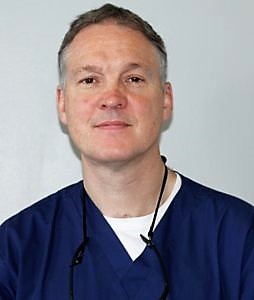I recently attended the launch of the manifesto for Rebuilding and Reforming Dentistry at Stormont. It was a great opportunity to talk to our MLAs about the serious issues facing hospital dentistry. We are struggling to recruit staff into the dental profession and to retain them once they are in the job.
Trouble recruiting new talent
The rate of pay for a dentist doing the same jobs in England and Northern Ireland is not the same. The lack of pay parity makes it a struggle to recruit new staff. This difference becomes most apparent at junior dentist level.
Salaries should be equal across all nations and the lack of pay parity needs to end.
Junior dentists returning to the hospital environment to train in a specialist subject as Dental Core Trainees (DCT) apply for roles through national recruitment. Job opportunities from across the UK are available and those with the highest pass ranks have the first choice as to where they would like to undertake their hospital training.
Higher paid, more attractive, jobs are snapped up by the highest-ranking passes, leaving job opportunities in Northern Ireland as the last pick. In September 2021, five job roles were unfilled and weren’t chosen mainly because junior dental salaries are significantly lower here.
Dentists currently working in England, including many from Northern Ireland, are put off coming to Northern Ireland for a DCT job because they would be taking a pay cut. Many years ago, the decision was made not to increase dental pay in line with other locations. Since then, pay has continued to fall behind as devolved governments make their own decisions.
We continue to lobby to say that this is wrong, salaries should be equal across all nations and the lack of pay parity needs to end.
Pension problems and burn out
More needs to be done to retain staff. A lot of senior hospital consultants are looking to leave the service and retire early. Some are retiring as early as their mid-50s, which is quite unusual. In some cases, this is because dentists have found the pandemic difficult and have been facing a period of increased stress and burn out.
We are also faced with issues around the annual allowances on pension growth. Currently, if your pension growth exceeds the allowance put in place by the Government, you face a tax bill at the end of the year. Superannuation payments based off a percentage of salary means that we do not have control over how much we pay into our pension pot.
When hospital consultants work extra hours in a week to help patients, they pay more of their earnings into their pension pot, resulting in paying extra tax. This leads some dentists to the conclusion of putting in fewer NHS sessions, accruing less money into their pensions, decreasing the tax they need to pay at the end of the year. Under the current system dentists do not see the benefit of their extra work.
The issue with pensions is compounded with the lifetime allowance (LTA). Once a pension pot exceeds the LTA, it is also taxable. Dentists are breaching this allowance in their early 50’s and being faced with higher tax bills. These issues lead to early retirement, dentists taking their pension, then returning to do their job with fewer sessions than before.
In some parts of the UK there is a mitigation on this tax, which has helped to keep staff numbers up. A similar mitigation has been raised in Northern Ireland but there isn’t an appetite to put support in place at present.
Suspending the Clinical Excellence Awards
Clinical Excellence Awards showcase consultants who have gone above and beyond, providing excellent care and treatment for their patients or providing unpaid work to help communities.
The pandemic has been a stressful time, and dentists are working hard to improve the oral health of their communities.
The awards were suspended in Northern Ireland in 2011, which is affecting the morale of consultants. Dentists want to help support their communities and bring long waiting lists down. The pandemic has presented huge challenges and been a stressful time, but the awards could prove a real boost to morale. Access to the awards could help motivate dentists to stay in their roles.
Many are working hard on long waiting lists. The pandemic has been a stressful time, and dentists are working hard to improve the oral health of their communities. The lack of recognition has helped widen the gap and further contributed towards the gap between Northern Ireland and the other nations of the UK. Reintroducing these awards could perhaps help with low levels of morale.
Looking ahead
If we cannot keep senior dentists and consultants, or recruit junior dentists, patient care will be negatively impacted in the future. We need senior staff to train new talent. This will not happen if more experienced dentists feel they must cut back or retire.
We are a small part of the UK but deserve a level playing field to attract talent.
If consultants are lost from critical areas, not only will waiting lists increase, but services may also become unavailable. This could leave patients needing to travel to different nations to get the treatment they need.
We need a sustainable workforce and to understand why people are leaving and not applying for new roles. We are a small part of the UK but deserve a level playing field to attract talent. This needs to include pension mitigations, access to excellence awards, and pay parity for staff.
We have created a survey to gather your views about the impact pay parity issues are having on trainees in Northern Ireland. This will help us make the case for pay parity.
Together we are stronger.

